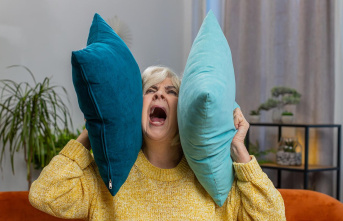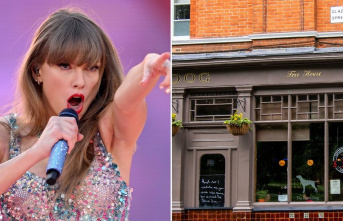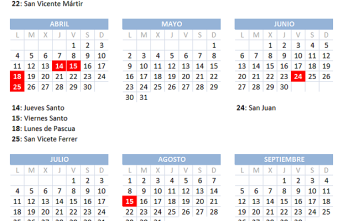The Palestinian streets woke up in shock. In a raid by the Israeli Army in Jenin, north of the West Bank, veteran Al Jazeera journalist Shireen Abu Aqleh, 51, was shot dead in the head. In a video broadcast by the Qatari channel, she was seen lying lifeless on the ground next to a shocked colleague, while the incessant bursts of gunfire continued around her. A few meters away, a man shouted her name in a loop and asked for help to help her, but her bullets prevented him from approaching.
Jenin has become a tinderbox: Several residents have carried out terrorist attacks in Israel in recent weeks, and Hebrew troops have launched multiple operations to arrest suspects in the city and surrounding villages.
In a statement, Al Jazeera accused Israel of killing its reporter "in cold blood," and called on the international community to make Israeli forces pay for it. Both the Ministry of Health of the Palestinian National Authority (PNA), as well as several colleagues present, testified that Abu Aqleh died from the shots fired by the Israeli Army. Ali Samudi, a journalist for the Al-Quds daily, was also shot in the back, leaving him with moderate injuries. According to his version, a group of seven reporters was in the Jenin refugee camp to cover the raid. All were identified with the press vest, and moments before they passed before the Israeli troops, so they were seen up close. Samudi said the first shot – believed to be from a sniper – missed them, the second hit him in the back, and the third was the one that killed his colleague.
The Army spokesman reported that “during the counter-terrorism activity in the Jenin refugee camp, the troops were met with live fire by dozens of Palestinian gunmen. They also launched explosive devices, endangering the lives of the soldiers, who responded by firing. And he added: "The event is being investigated, and the possibility that the journalists were hit by Palestinians."
After hearing this version, Samudi called it "an absolute lie". Although videos posted on social media show hooded Palestinians shooting from the narrow alleys of Jenin, the group of reporters was hit at an entrance to the city, and there was apparently no presence of armed militiamen around them. Shatha Hanaysheh, another journalist present, said that a nearby building was full of Israeli soldiers, and that after being targeted by shells, they were unable to withdraw or take shelter.
Mahmud Abas, president of the ANP, cataloged the death as an "execution and a horrible crime", and blamed the Israeli Army for what happened. For his part, Israeli Prime Minister Naftali Bennett said that "Palestinians accuse Israel without clear evidence." Bennett offered Abas to start a joint forensic investigation, based on all the documentation and evidence obtained, to clarify the truth of what happened. The premier said that “for now the Palestinians have rejected the offer”, but the ANP denied that any formal Israeli proposal had arrived.
In a central square in Ramallah, the image of the late journalist was projected on a large scale along with the slogan "Goodbye Shireen". For many, Shireen Abu Aqleh (Palestinian with an American passport) was the face and voice that narrated their experiences and tragedies: from the Israeli army's siege of Jenin during the second intifada, to the most recent altercations in the Sheikh Jarrah neighborhood in Jerusalem. Her colleagues highlighted her courage and her willingness to always report from the field.
The US ambassador to Israel, Tom Nides, demanded a "deep investigation to clarify the causes of death" after confirming that Abu Aqleh was a US citizen. The EU delegation in the Palestinian territories expressed its "shock", and stressed the urgency of "ensuring the safety and protection of journalists covering conflicts".
The experienced reporter, who had worked for Al Jazeera since 1997, commented in a video commemorating the channel's 25th anniversary that “I chose to be a journalist to be close to the people. Maybe it's not easy to change reality, but at least I can give space to their voices." Israel modified her version, specifying that "at the moment it is not possible to clarify who caused the death of Abu Aqleh."
4












